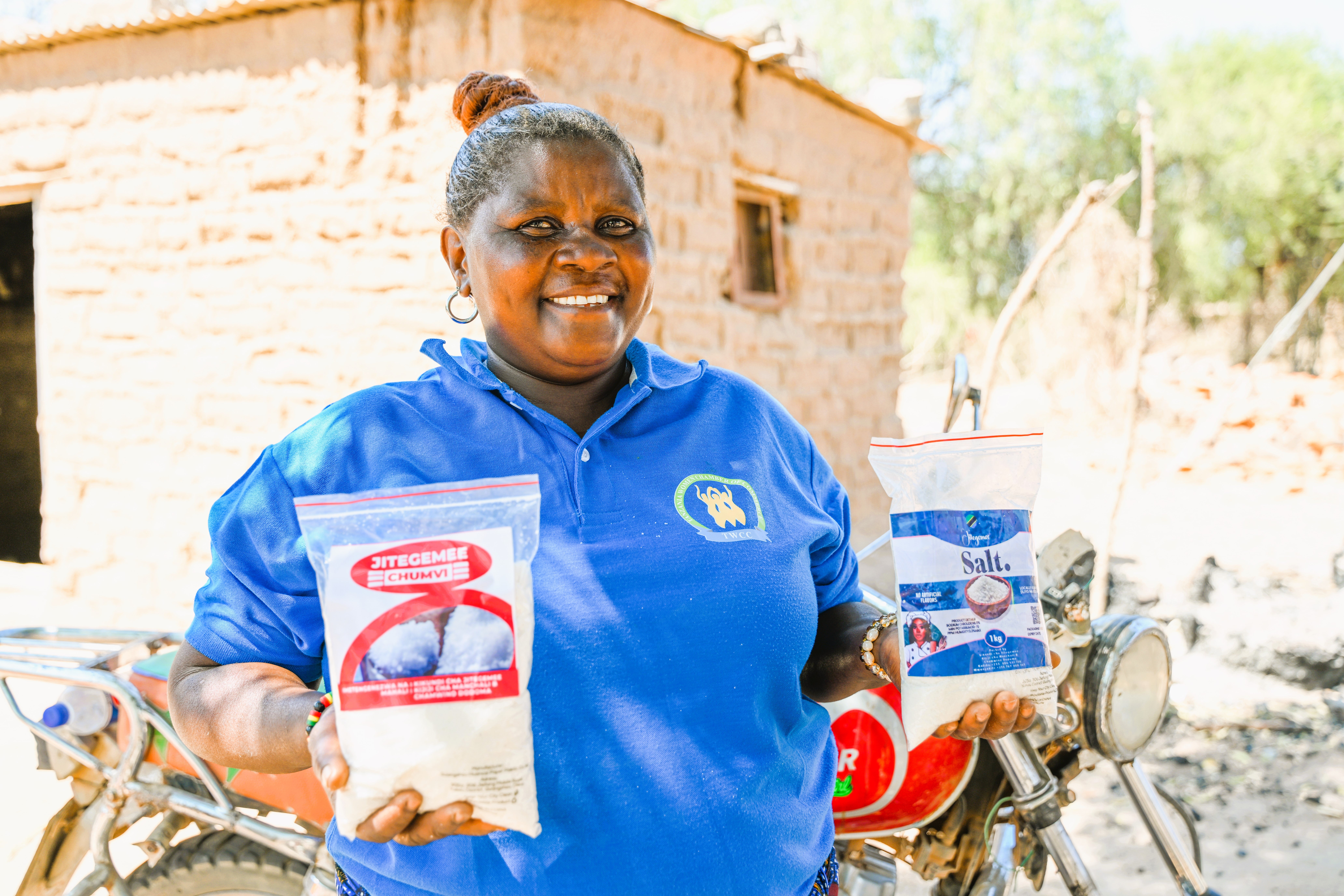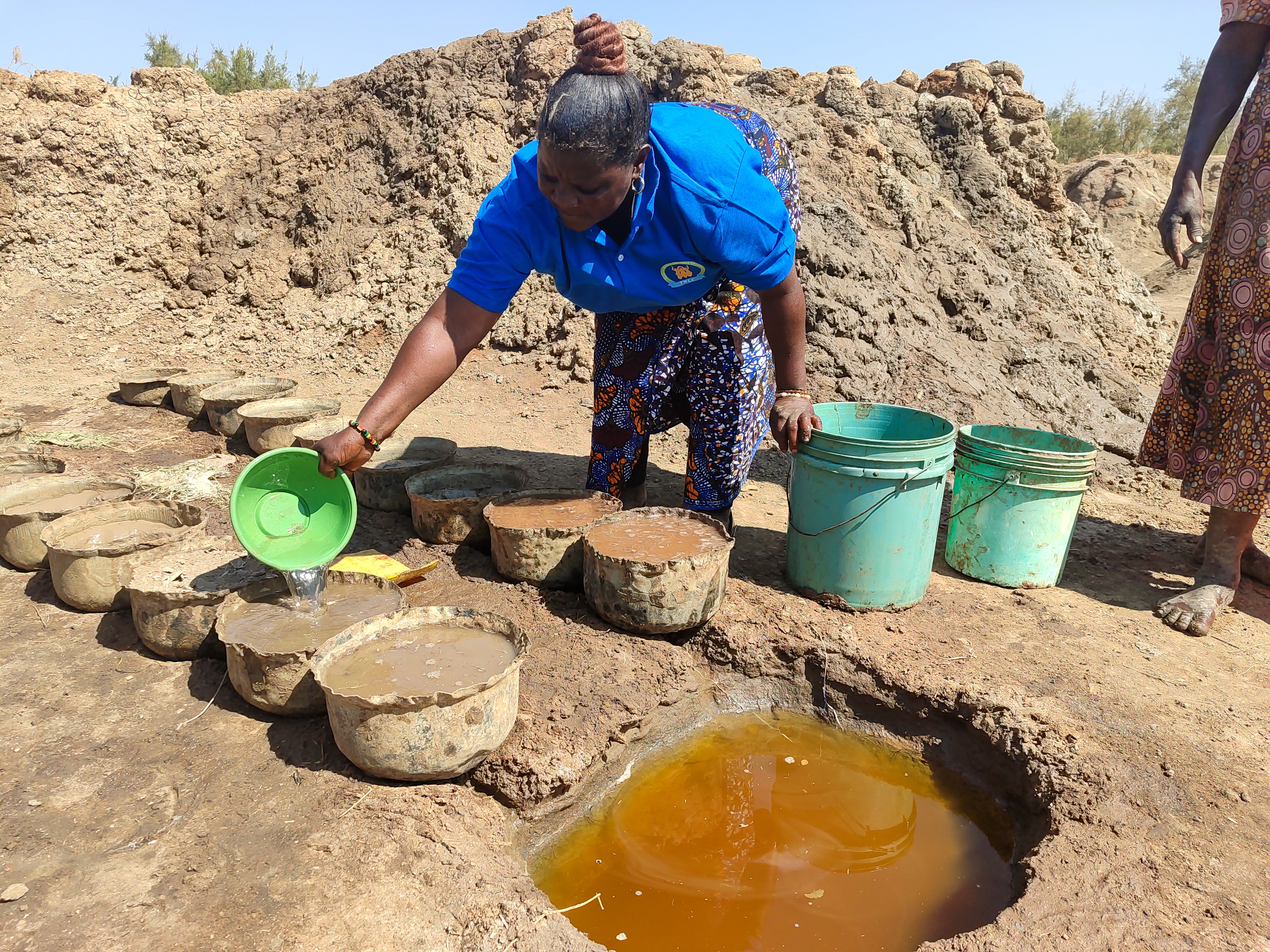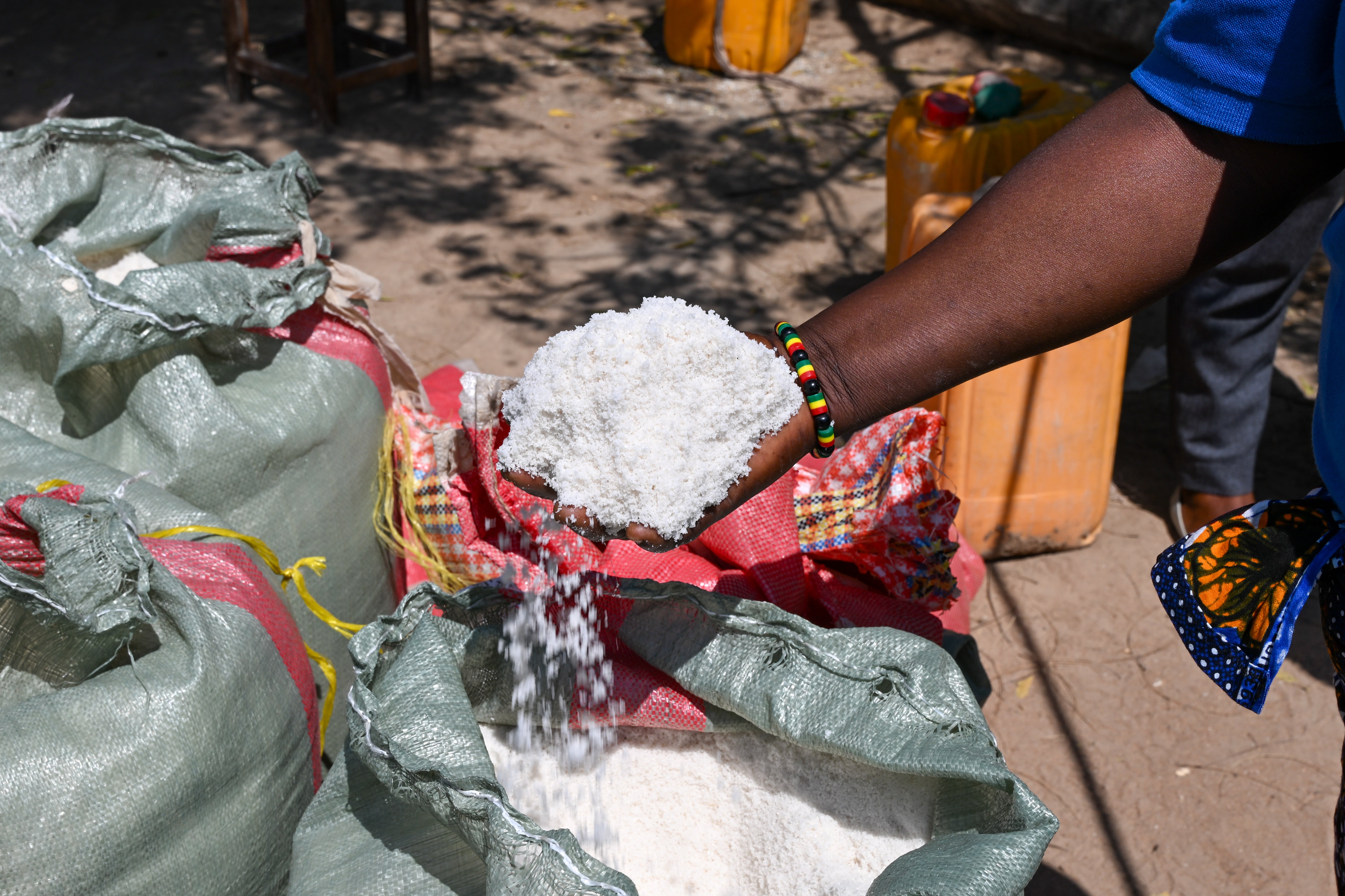Empowering Rural Women: How Tanzania’s Jitegemee Group is Transforming Rock Salt Mining into Economic Opportunity
Date:

Under the towering hills of Chinangali in Tanzania’s Dodoma region lies a hidden treasure: rock salt from humid water falling from a salt tree locally named Magifu or Machamwino. Chairperson Ms Sarah Mganga, along with other members of the Jitegemee group, which translates to “Independent” in the Swahili local dialect, have been mining this “white gold” for years and selling it at their field-based processing site. They used to offer two sacks of finished salt, each weighing 96 Kilograms, for 72,000 Tanzanian Shillings (about $ 27).
The process of extracting and refining the salt is labor-intensive. The women of Jitegemee painstakingly scrape salt-laden soil from the open fields, forming it into small mounds. They gather the dirt into sacks, loading them onto donkey-pulled carts, which transport the raw material to their local processing area within the mining field. This is then dissolved in small pans to drain the salt-rich water, which is then boiled in large shallow metal pans until the water evaporates, leaving behind crystallized salt. The women scrape the crystals from the pan, preparing them for sale.
Despite the gruelling nature of their work, the women were not receiving full value for their labor, earning just 74,000 Tanzanian shillings (about USD $27) for two 96kg sacks of finished salt.
“Our production process is very demanding. We used to sell most of our salt at the field processing site and a little during local market days,” explains Sarah.

Recognising the need for support, UN Women, through the Joint Programme on ‘Accelerating Progress towards the Economic Empowerment of Rural Women’ (JP RWEE), collaborated with the Dodoma regional government to help 135 women increase their income through value addition. The women received training in improving salt processing techniques to produce a cleaner, whiter product, packaging for added value, and distribution strategies. They also learned leadership and entrepreneurship skills, empowering them to have a stronger voice in their community.
Now, with enhanced value addition, marketing and business skills, the Jitegemee group is packaging their salt in smaller units of 1 Kg, and their profits have surged five-fold.
“We used to make Tsh 36,000 per sack of 96 Kgs, but now we are able to sell each kilo of salt for Tsh 2000. With 96 Kgs per sack, we’re making Tsh 192,000 (USD $68) which is about five times what we used to,” Sarah says, as she carefully packages salt for a customer. Sarah has also expanded her market beyond her district in Chamwino, attracting more wholesale customers. After participating in the International Trade Fair in Dar es Salaam in July, supported by JP RWEE, she secured an order for 600 kg of salt.

However, challenges remain. Packaging materials are hard to find locally, forcing the group to source them from Dar-es-Salaam and transport them to Dodoma. Additionally, women still need support in negotiating skills with buyers, as some buyers still prefer to purchase salt in bulk.
To overcome these challenges, Sarah plans to form a large cooperative that will unite all women salt miners in Chinangali to package and sell their products. “This way, buyers will have no choice but to come to our office and purchase the salt from us,” said Sarah.
Through ongoing collaborations with regional governments and private sector partners, JPRWEE aims to scale up interventions that address the barriers rural women face that limit their full participation in the economy. By leveraging their economic potential, these women are not only improving their livelihoods but also becoming key agents of economic, environmental and social change.
Sarah is also one of 64 women champions advocating for clean cooking practices through JP RWEE, and has recently transitioned from using charcoal for cooking at home to using a Liquid Petroleum Gas stove. This shift has reduced her cooking time, allowing her to dedicate more time to expanding her salt business.
Looking ahead, plans are in place for the JP RWEE programme to support groups like Jitegemee to formalize into larger cooperatives, further improving value addition and access to markets.
The Joint Programme on ‘Accelerating Progress towards the Economic Empowerment of Rural Women’ is a global initiative designed to secure rural women’s livelihoods, rights, and resilience. It takes a comprehensive approach that covers the social, economic and political domains of empowerment. Funded by the governments of Norway and Sweden, and jointly implemented by the Food and Agriculture Organization of the United Nations (FAO), the International Fund for Agricultural Development (IFAD), the World Food Programme (WFP) and UN Women, the programme builds on each agency’s strengths to improve the status of women in rural areas.